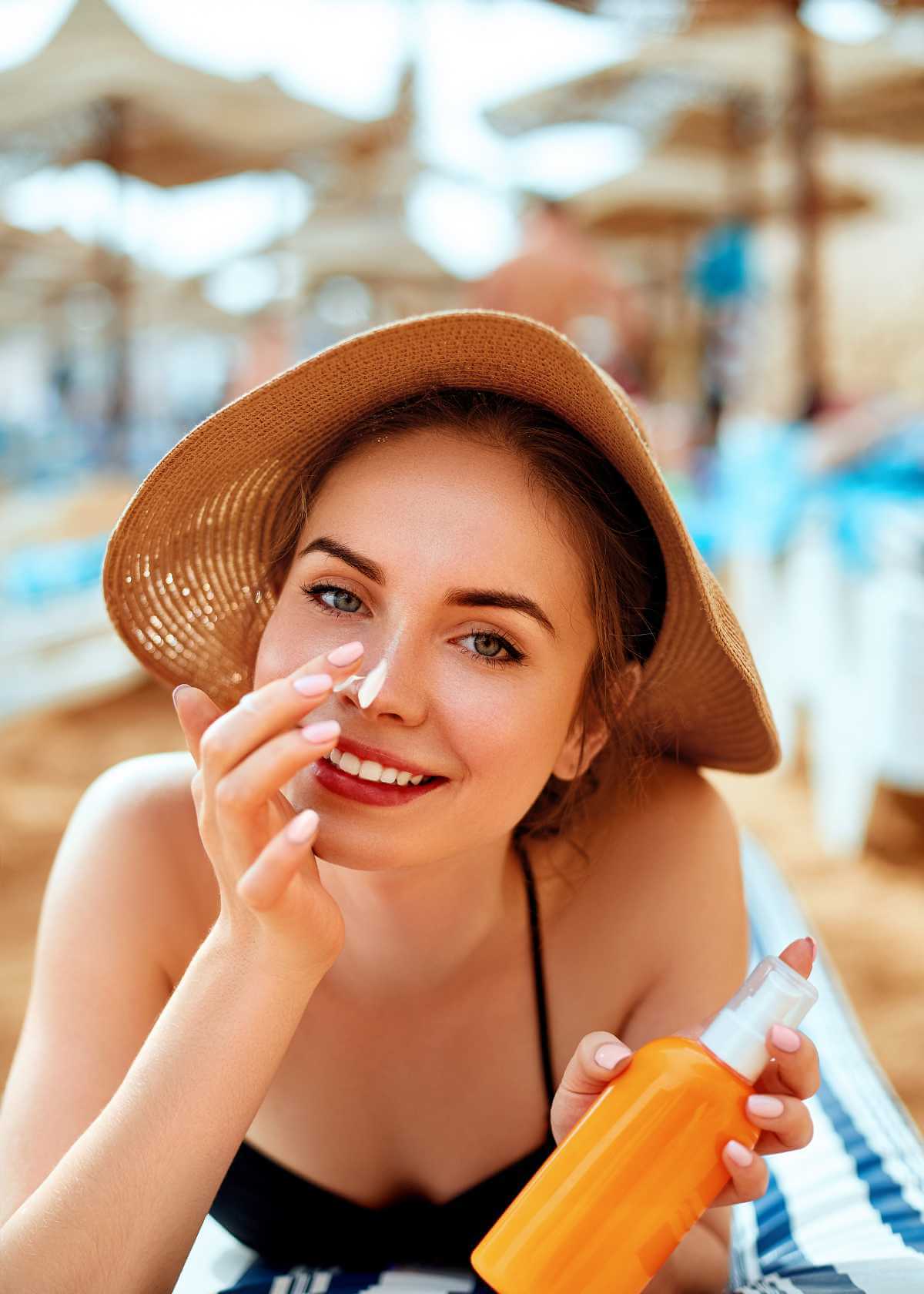Introduction
Well hello there, sun-loving compadres! Ready to trade in that typical sunscreen aroma for something more, shall we say, nostril-delighting? You're in the right spot! Today, we're diving nose-first into the vivid world of fabulously fragranced sunscreens. Because, let's be real, who said you can't smell like a tropical paradise while also fighting off those pesky UV rays? Spoiler: Absolutely no one.
But before we take this scent-illating journey, we need to have a little chat about our unsung hero, sunscreen. Yes, it can be a little sticky, maybe even a tad bit greasy. But hey, without it, we'd be as crispy as an over-baked potato chip, and no one wants that. So, we apply, and reapply, and apply again. And now, we have a secret weapon: sunscreens that smell so good you'll want to apply them even when it's cloudy.
Together, we'll unravel the mysteries of what makes a sunscreen smell (learn How to Describe the Smell of Sunscreen here!) downright delightful. We'll help you navigate the sun-kissed path to find the sunscreen that not only makes your nose happy but also provides the sun protection you need. Let's make sun protection a bit more scentsational, shall we?
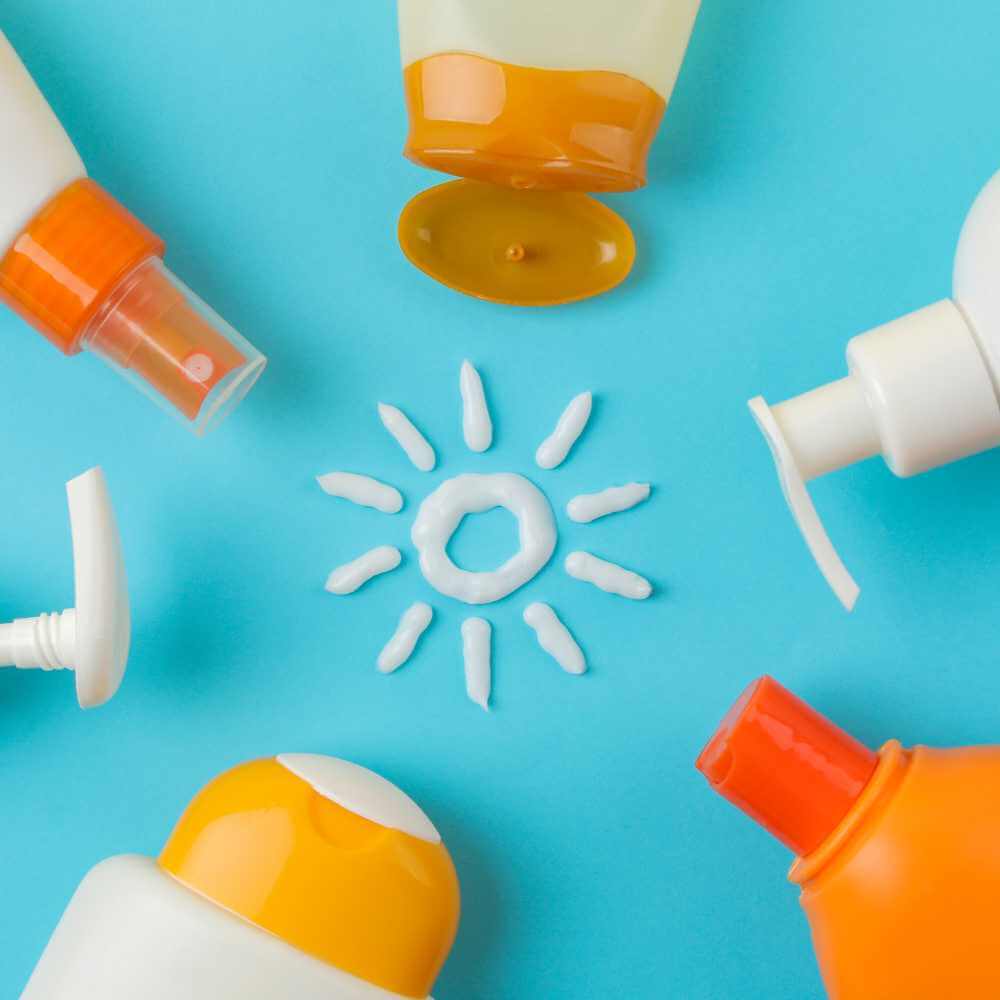
The Importance of Sunscreen
Sunscreen, oh sunscreen, where would we be without you? Probably nursing a sunburn, that's where. But it's not just about avoiding the unpleasant sensation of scorched skin. Our trusty sunscreen plays a vital role in the grander scheme of things.
For starters, it provides a much-needed shield against the sun's harmful ultraviolet rays, namely UVA and UVB. UVA rays can age our skin prematurely, turning us into wrinkly raisins before our time. And then there are UVB rays that can scorch our skin faster than a marshmallow on a campfire.
Not only does sunscreen help maintain our youthful appearance (who doesn't want that?), it plays a critical role in reducing the risk of skin cancer, the most common type of cancer worldwide. It's a key player in our health and beauty regimes, and honestly, it deserves more than a medal.

What Makes a Sunscreen "Smell Good"
Now, onto the fun stuff: What makes a sunscreen smell less like a chemical lab and more like a summer's dream? If only there was a magical 'smell good' ingredient. But alas, there isn't. The delectable scent in a sunscreen is usually the result of a finely crafted cocktail of fragrance components.
It's not just about throwing in a dash of vanilla or a squirt of coconut, though those certainly can help. It's about creating a balance between these fragrances and the functional ingredients of the sunscreen. The challenge? Ensuring that the scent doesn't compromise the sunscreen's primary duty: protecting your precious skin.
Scents can be subjective, too. What might transport one person to a sun-drenched beach could remind another of their least favorite cocktail. It's a delicate dance between personal preference and olfactory science. But when it's done right? Oh, boy, your nose is in for a treat!
So, as we dive into the world of delightfully scented sunscreens, remember: the 'best' smell is the one that makes you feel good, confident, and ready to conquer the day, sun rays and all. Let's march on, shall we? The fragrant path to the perfect sunscreen awaits!
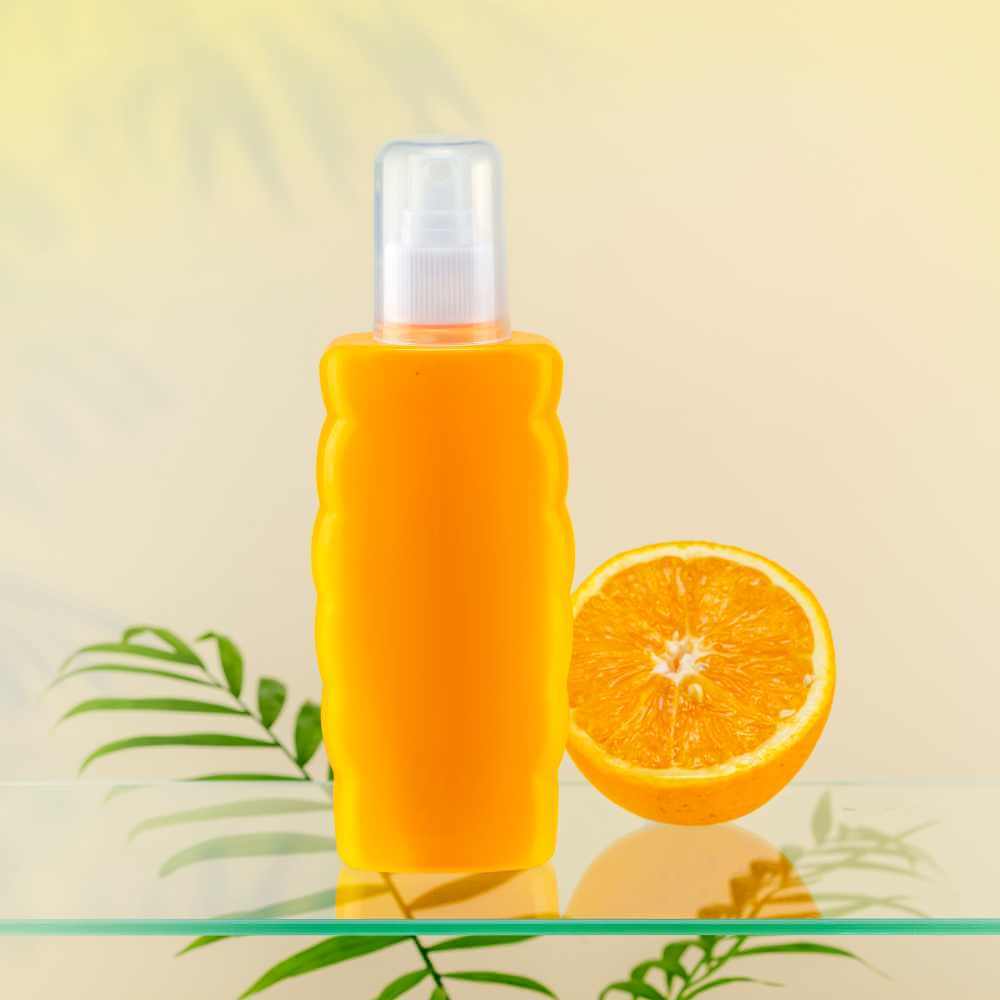
What to Look for in a Good Smelling Sunscreen
Ah, the quest for the perfect sunscreen. One that not only saves your skin from those relentless UV rascals, but also tickles your nostrils with a delightful aroma. It might seem like searching for a unicorn in a horse ranch, but trust us, they exist. But how do you pick one out of the herd? Here's what to look for:
Scent
Your nose knows best! The scent of your sunscreen should be a personal joy ride. Do you like fruity, tropical smells? Think juicy mangoes or coconuts. Or do you prefer a more floral tone? Perhaps a whiff of jasmine or lavender. Maybe you're more into the classics and prefer the smell of clean, fresh linen. The best part? There is no wrong choice! As long as it brings a smile to your face, you're on the right path.
Protection
Don't let a captivating scent distract you from the main job of your sunscreen: sun protection. The ideal sunscreen should have at least an SPF 30 to keep your skin safe from the sun's damaging rays. And remember, 'broad-spectrum' is the magic phrase here. It means the sunscreen protects against both UVA and UVB rays, the main culprits behind sunburn and skin aging.
Ingredients
The scent of a sunscreen often comes from the carefully concocted mix of fragrant ingredients. Some of these might be essential oils like vanilla or citrus, others might be entirely synthesized. But, keep an eye out for potential skin irritants if you have sensitive skin. And if you're a friend to the environment, you might want to look for 'reef-safe' sunscreens that don't contain harmful chemicals like oxybenzone and octinoxate.
Compatibility with Skin Types
Skin types are like fingerprints - no two are alike. Okay, that might be an overstatement, but it's crucial to find a sunscreen that suits your unique skin type. If you have oily skin, lighter, oil-free formulations might be your best bet. Dry skin? Look for sunscreens with moisturizing ingredients. Sensitive skin? Mineral sunscreens are often more tolerated.
Remember, the goal is to find a sunscreen that you love so much, you'll never skip a day. Smell good, feel good, and do good for your skin. What a sun-believable combination!
Our List of the Top Products in This Category
1. Hawaiian Tropic Silk Hydration Weightless Sunscreen Lotion
2. Supergoop! Glowscreen
3. Reef Safe Sunscreen SPF 30+ All Natural
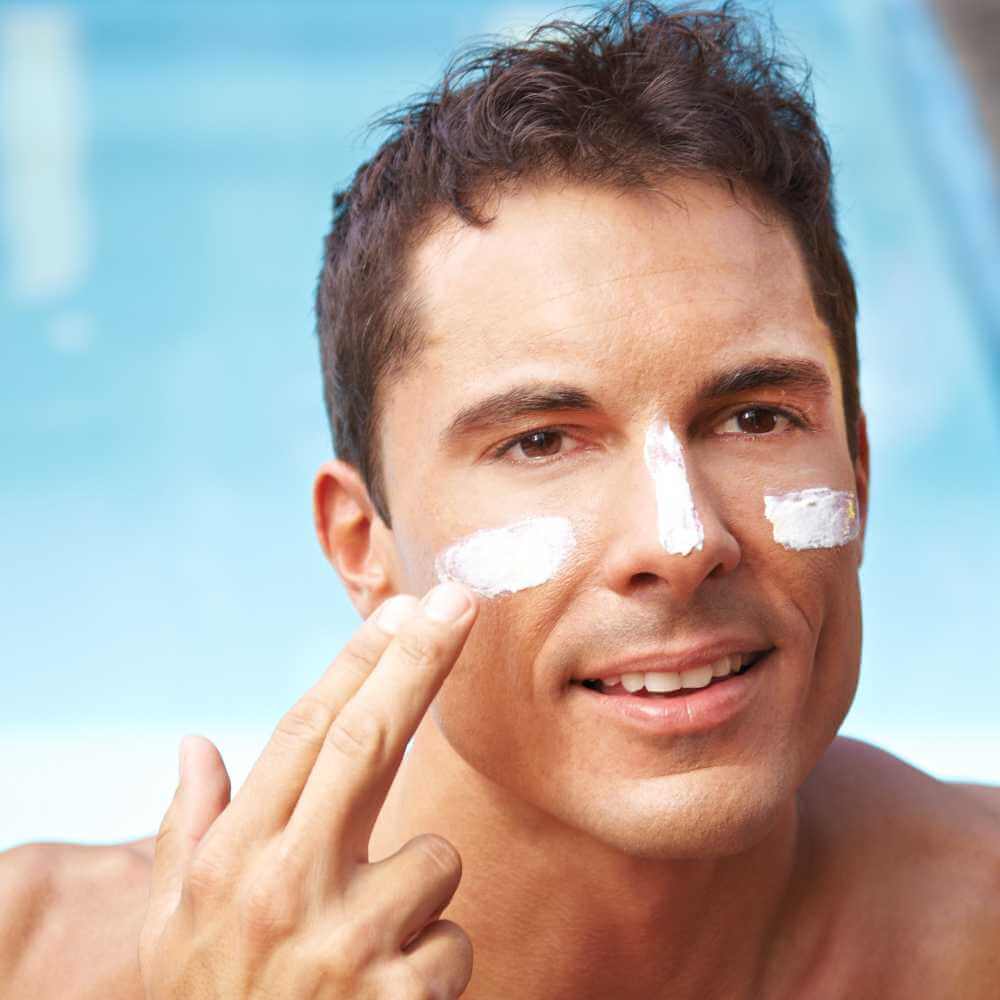
How to Apply Sunscreen Properly
So you've hunted down the perfect sunscreen. It smells divine, provides the protection you need, and your skin loves it. You're ready to take on the sun, right? Hold on, compadre, you're not quite done yet. You've got to make sure you're applying that magical lotion correctly. Here's your handy-dandy guide to proper sunscreen application:
- Quantity Matters: Dermatologists recommend using about a shot glass full of sunscreen to cover your entire body. Under-application can lead to less than advertised protection. Think of it this way: Your body's a canvas and you're painting a protective masterpiece. Don't skimp on the paint!
- Be a Timelord: Apply your sunscreen at least 15 minutes before you step out into the sun. This gives your skin enough time to absorb it and start working its UV-blocking magic.
- Leave No Skin Behind: Don't forget those often neglected areas: the backs of your ears, the tops of your feet, the back of your neck. And your face? Use a teaspoon amount and remember to cover your under-eye area and the tips of your ears.
- Lip Service: Your lips need love too. Use a lip balm with at least SPF 15 to keep them protected and kissably soft.
- Reapply, Reapply, Reapply: Sunscreen isn't a one-and-done deal. You'll need to reapply at least every two hours, and immediately after swimming, sweating, or towel-drying.
- Sun or Cloud, Apply it Loud: Yes, even on cloudy days, up to 80% of UV rays can pass through clouds. So, don't ditch the sunscreen routine just because the sun is playing hide and seek.
Remember, with sunscreen, consistency is key. Make it a daily habit, just like brushing your teeth or combing your hair. Except this time, you'll smell like a dream while doing it.
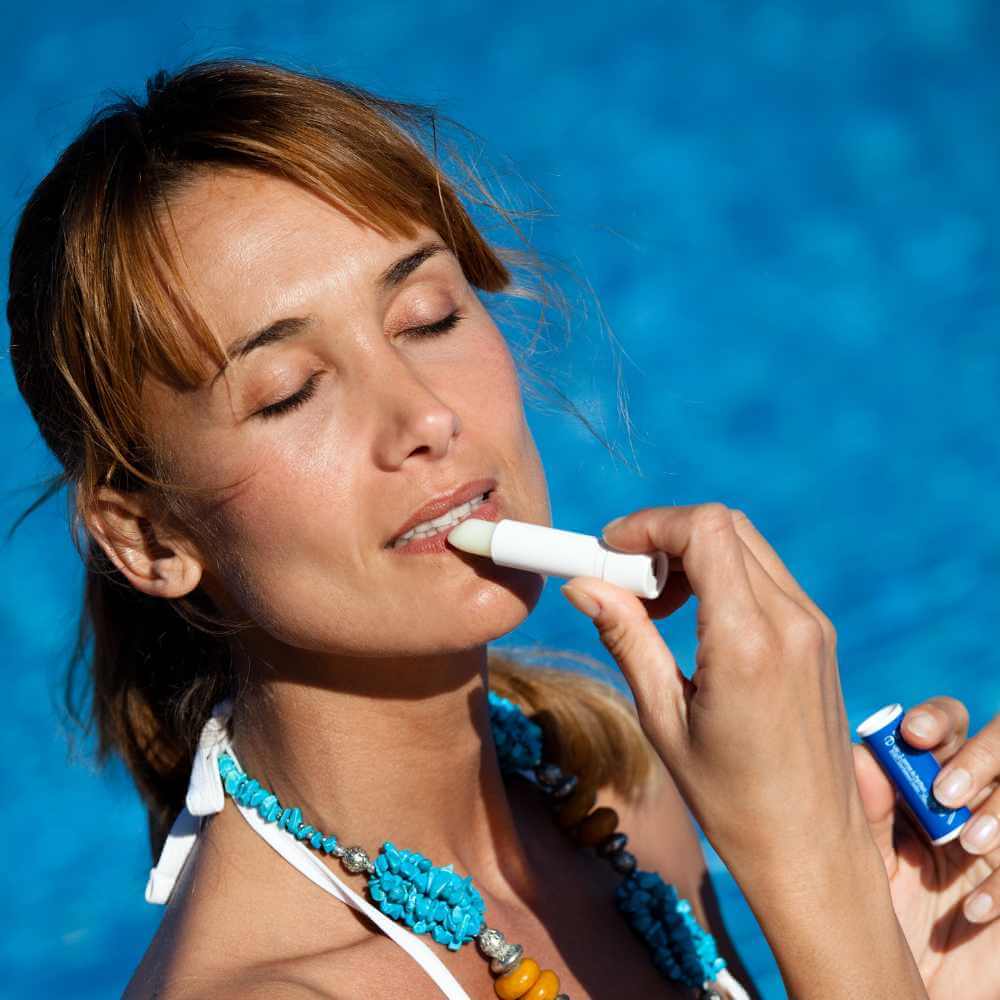
Common Myths About Sunscreen
Buckle up, dear readers, because we're about to bust some myths. Yep, you've guessed it, we're talking sunscreen myths. They're as stubborn as a beach umbrella in a sandstorm. But fear not, your friendly neighborhood sunscreen enthusiast is here, equipped with facts and ready to set the record straight.
- Myth: Dark skin doesn't need sunscreen.
Fact: Wrong, wrong, and did we mention, wrong? While it's true that melanin does provide some protection against sunburn, it doesn't protect against all UV damage. People with all skin types can get skin cancer, so sunscreen is a must for everyone.
- Myth: You only need sunscreen in the summer or on sunny days.
Fact: This is a tricky one, but alas, it's false. The sun's UV rays are year-round party crashers. They can bounce off surfaces like snow or water and reach your skin. And as we mentioned earlier, they can even penetrate clouds. So, it's an all-weather, all-year commitment.
- Myth: Sunscreen can cause Vitamin D deficiency.
Fact: Theoretically, it sounds possible, right? But in reality, even with regular sunscreen use, we usually get enough sun exposure for Vitamin D synthesis. You can also get Vitamin D from a balanced diet and supplements. So, no need to risk sunburn or skin cancer for your daily dose of the 'sunshine vitamin'.
- Myth: Makeup with SPF is enough.
Fact: Unless you're applying a thick, even layer of foundation or powder (like you would with sunscreen), you're probably not getting the full SPF advertised. Best to stick with actual sunscreen under your makeup to ensure adequate protection.
- Myth: The higher the SPF, the better.
Fact: Once you go beyond SPF 30, the increase in UVB protection is minimal. What's more important is applying a sufficient amount and reapplying regularly. And remember, no sunscreen, regardless of strength, should be expected to stay effective longer than two hours without reapplication.
There you have it, folks! Sunscreen myth-busting at its finest. Don't let these misconceptions stand in the way of protecting your skin. And with your fabulously fragranced sunscreen, you'll be doing it in style!

Conclusion
Well, folks, we've soaked up a whole lot of information about sunscreens that not only fight off harmful UV rays but also delight our noses with divine scents. We've explored the essentials of what to look for in a nose-pleasing sunscreen, dispelled myths that have been hanging around like a bad tan line, and discovered how to properly apply our newly found treasure.
Remember, the best sunscreen for you is one that you'll use consistently. So why not make it a treat for your senses as well as your skin? Life's too short for boring sunscreen, right?
Our journey together may be drawing to a close, but your aromatic adventure is just beginning. As you stride forward, confident and prepared, remember: The world is your sunny oyster, and now you've got the perfect pearl of a sunscreen to go with it.
Share the knowledge and spread the sunshine! If you've enjoyed this dive into the scented side of sun protection, don't keep it to yourself. Bookmark this guide, share it with your friends, family, or anyone you think might enjoy a little sunshine in their life (with the added benefit of smelling great). Together, we can make the world a safer, sunnier, and better-smelling place!

